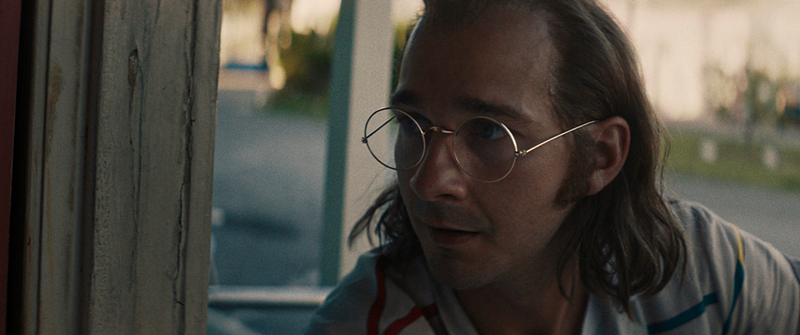The mercurial former child star Shia LaBeouf (Even Stevens, Transformers), who wrote what became the script for Honey Boy while in rehab, has dealt with no shortage of negative publicity. Prone to vile outbursts and drunken misbehavior, LaBeouf was for many years a cautionary tale about peaking in Hollywood too soon. At best, he had become a wide-eyed, hard-clapping meme.
It was in 2017 that he accosted a plainclothes police officer while intoxicated and landed in rehab. It was there that he confronted his past honestly for the first time. He was told, for example, that he was suffering from PTSD. LaBeouf happened to have been on set for The Peanut Butter Falcon, which came out this summer and would have done wonders for LaBeouf's image even without Honey Boy. But Honey Boy, directed brilliantly by documentarian/professor/music video alum/LaBeouf personal friend Alma Har'el, is a biopic unlike any you've ever seen. It's by no means the best, but the unblinking honesty with which it treats its subjects, and LaBeouf's tour de force performance, are plaudits enough to make Honey Boy a candidate for awards-season chatter.
The film is currently showing at select theaters locally and moviegoers can expect an earnest and sometimes impressionistic tale about a father and son. Starring Lucas Hedges as LaBeouf's alter-ego Otis Lort at 22; Noah Jupe as 12-year-old Otis; and LaBeouf as Otis' father James, the film follows the older Otis as he makes his way through rehab, slowly coming to terms with the various traumas of his California upbringing, while showing extended fragments of that upbringing in parallel.
Har'el has said in interviews that the ultimate product only captured about 5 percent of what LaBeouf wrote in therapy and that the film spared viewers from the most violent episodes so as not to fetishize the actor's pain. Whether as a result of that decision or not, the film packs a powerful punch and avoids what might have been an overindulgent or even trollish autobiographical narrative.
All three leads are sensational in their own rights. LaBeouf goes for broke playing a role that no one knows better than he does. And Hedges, astonishingly, captures the pace and cadence of LeBeouf at his most aggressive. The young Jupe, who also stars as the son of Christian Bale in Ford V Ferrari, is a rising child star himself and turns in one of the more memorable performances by a young actor in recent years. Directors and screenwriters could learn a great deal about economical visual storytelling from the film's spectacular opening five minutes. (In theaters)


